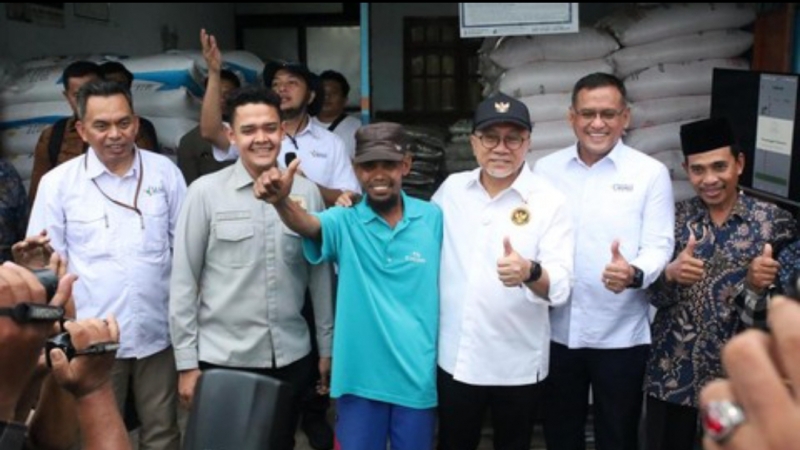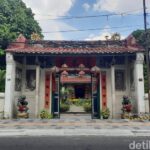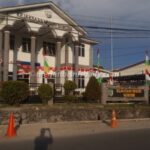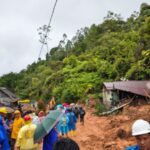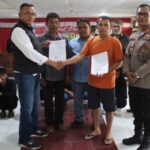Farmers have responded positively to the 20 percent reduction in the Maximum Retail Price (HET) of subsidized fertilizer set by President Prabowo Subianto. This policy is considered capable of easing the burden on farmers and improving their welfare ahead of the upcoming planting season.
This was conveyed during a direct visit to farmers in Jombang Regency, East Java. The official became the first minister to visit the field since the HET reduction policy was implemented.
“Good news, thanks to the hard work of the Director of Pupuk Indonesia, the Government, and the House of Representatives. Alhamdulillah, now farmers can buy fertilizer at a lower price. Usually the price goes up, but this time it has gone down, and by a significant amount. This is to make farmers more prosperous,” the official stated in a written release.
The HET reduction applies to several types of fertilizer. Urea fertilizer decreased from Rp 2,250/kg to Rp 1,800/kg (Rp 112,500 to Rp 90,000 per 50 kg sack), NPK fertilizer decreased from Rp 2,300/kg to Rp 1,840/kg (Rp 115,000 to Rp 92,000 per sack), and special cocoa NPK fertilizer decreased from Rp 3,300/kg to Rp 2,640/kg (Rp 165,000 to Rp 132,000 per sack).
Meanwhile, ZA fertilizer, which is now included in the subsidy scheme, also decreased from Rp 1,700/kg to Rp 1,360/kg (Rp 85,000 to Rp 68,000 per sack). Organic fertilizer, which was originally Rp 800/kg, has now decreased to Rp 640/kg (Rp 32,000 to Rp 25,600 per 40 kg sack).
The official stated that this policy is a form of the government’s support for farmer welfare and a commitment to achieving national food self-sufficiency.
“The price of unhusked rice has increased to Rp 6,500 per kilogram. As a result, farmers’ incomes have risen. Rice production has increased because there is sufficient fertilizer and good irrigation. Thank you to the President, Mr. Prabowo, because of his order to reduce fertilizer prices,” the official explained.
On that occasion, the official also inspected a fertilizer warehouse in Jatipelem to ensure sufficient stock availability for the planting season. It was stated that the government has increased the allocation of subsidized fertilizer from 4 million tons to 9.55 million tons.
“There is plenty of fertilizer in the warehouses, and it never runs out. The supply is much greater; we have provided 9.55 million tons, but farmers have only taken 6.3 million tons. So there are still over 3 million tons remaining. In East Java, the allocation is 2 million tons, but only 1.5 million tons have been absorbed. There are still 500 thousand tons. If there is any shortage, please report it,” the official said.
Meanwhile, the Director of PT Pupuk Indonesia (Persero) appreciated the official’s step of directly inspecting the policy implementation in the field. It was confirmed that the HET reduction has been fully implemented across all Pupuk Indonesia’s kiosk and PPTS networks throughout Indonesia.
It was also stated that the fertilizer stock in Jombang reached 10,430 tons, consisting of 2,580 tons of Urea, 7,316 tons of NPK, 113 tons of ZA, and 421 tons of organic fertilizer.
“The policy to reduce the HET of subsidized fertilizer has been fully implemented across all Pupuk Indonesia kiosk/PPTS networks from Sabang to Merauke,” the statement concluded.

